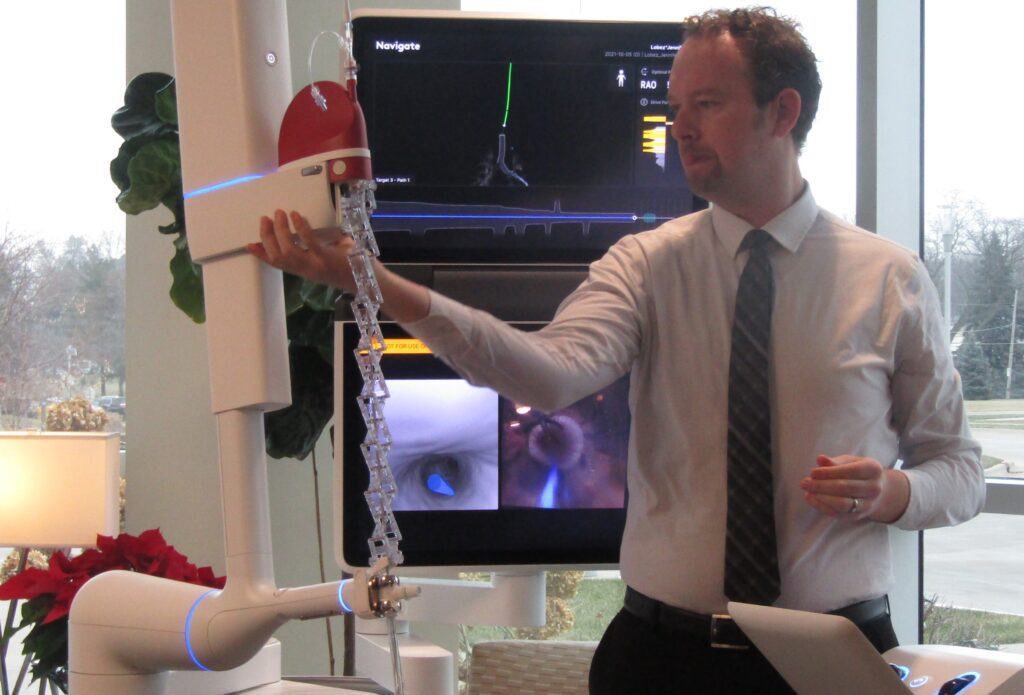Black Friday: Day a ‘success’ for many QC businesses
Dave Thompson

Dr. Brian Witt shows some of the features of the Ion robotic-assisted lung biopsy platform on Tuesday, Dec. 20, during a news conference at Genesis Medical Center-East Campus, Davenport. CREDIT DAVE THOMPSON
When Patty Gilbreath got the news, she thought her life might be over.
The diagnosis was lung cancer.
“It’s devastating. Your life is put on hold. You just think it’s done,” Ms. Gilbreath recalled.
But today – just a few weeks after that life-changing news – the 59-year-old Davenport woman is cancer-free. That’s because on Wednesday, Nov. 9, Ms. Gilbreath had surgery…

Get immediate, unlimited access to all subscriber content and much more.
Learn more in our subscriber FAQ.
Do you want to read and share this article without a paywall?
